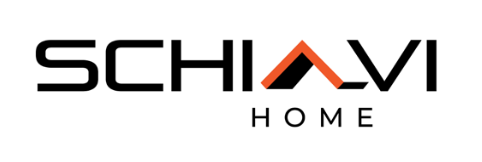Unlocking Efficiency and Customization: The Advantages of Modular Home Construction Over Traditional Stick-Built Homes
Building a home is a significant endeavor, and choosing the right construction method is a crucial decision that directly impacts the outcome. In recent years, the debate between modular home construction and traditional stick-built homes has gained traction. Let's delve into the benefits of opting for modular home construction over the conventional stick-built approach.
1. Speedy Construction Time:
One of the standout advantages of modular home construction is its swift and streamlined process. Unlike stick-built homes that are constructed on-site, modular homes are pre-fabricated in a controlled factory environment. This controlled setting allows for simultaneous work on different sections of the house, leading to significantly reduced construction times. Typically, modular homes can be completed in a matter of months, offering a quicker route from planning to move-in.
2. Cost-Efficiency:
Efficiency extends beyond time to the realm of cost-effectiveness. Modular homes often come with a lower price tag compared to their stick-built counterparts. This cost advantage is attributed to various factors, including reduced labor expenses, economies of scale in the manufacturing process, and minimized material waste. Assembling a home in a factory allows for meticulous planning and efficient use of resources, translating into savings for the homeowner.
3. Quality Control:
Quality control is a critical factor in any construction project, and modular homes excel in this regard. The controlled environment of a manufacturing facility ensures that each module undergoes rigorous quality checks and adheres to industry standards. This consistency in construction results in homes that are often more structurally sound and resilient, providing homeowners with peace of mind regarding the long-term durability of their investment.
4. Customization Flexibility:
While some may assume that modular homes lack the customization options of stick-built homes, the reality is quite the opposite. Modern modular construction allows for a high degree of customization, enabling homeowners to tailor their homes to their preferences. From floor plans to exterior finishes, the flexibility in design ensures that modular homes are not cookie-cutter structures but unique residences that reflect the individuality of their owners.
5. Environmental Sustainability:
The modular construction process is inherently more sustainable than traditional stick-built methods. The efficiency in material usage, reduced waste, and controlled production contribute to a smaller environmental footprint. Additionally, many modular home builders prioritize the use of eco-friendly materials and energy-efficient features, aligning with the growing demand for sustainable and green housing solutions.
6. Predictable Project Timelines:
Construction projects often face delays due to unpredictable weather conditions when building on-site. Modular homes, being constructed indoors, are less susceptible to weather-related setbacks. This predictability in project timelines not only benefits homeowners by allowing them to plan their move more accurately but also provides a level of certainty for builders and contractors.
7. Lower Financing Costs:
The expedited construction timeline of modular homes translates into lower financing costs for homeowners. Reduced construction time means fewer months of interest payments for those financing their homes. This financial benefit adds another layer to the overall cost-effectiveness of choosing modular construction.
Conclusion:
In the dynamic landscape of home construction, modular homes stand out as a contemporary and efficient alternative to traditional stick-built houses. From accelerated construction timelines and cost savings to enhanced quality control and customization options, the benefits of modular home construction are compelling. As an expert in both building and communication, I recommend prospective homeowners carefully weigh these advantages when making decisions about their dream home. The future of residential construction is modular, offering a harmonious blend of efficiency, sustainability, and personalized design.

